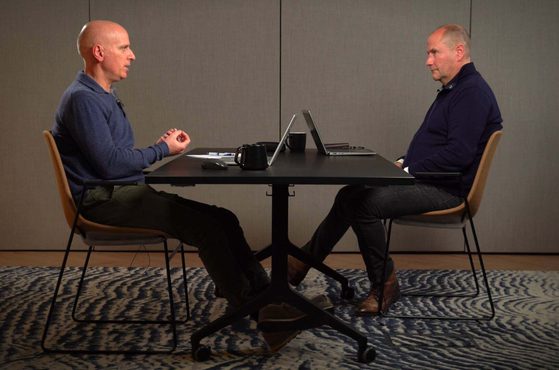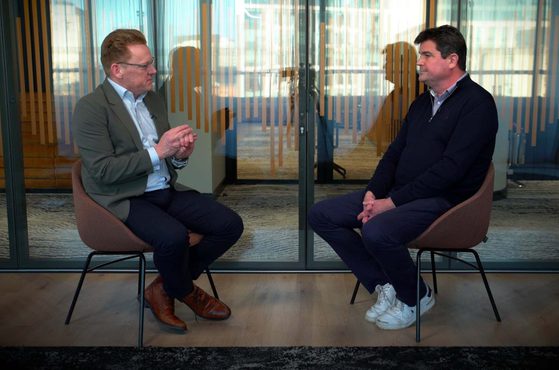Deepfakes & AI-powered cybercrime in sport — how can athletes & clubs protect themselves?

We discuss the mounting dangers of AI-powered cybercrime across the world of sport with David Andrew — the Founder and Managing Partner of Tiaki.
Read more
We make the difference. Talk to us: 0333 004 4488 | hello@brabners.com
AuthorsAndreas Petrou

The saga of Microsoft’s proposal to acquire Activision Blizzard is reaching its conclusion.
It was announced on Friday 13 October that the acquisition had closed following the CMA’s approval earlier in the day.
Microsoft’s structural changes to the deal seem to have been responsible for getting it over the line. The deal now divests Activision Blizzard’s cloud streaming rights to Ubisoft for a period of 15 years, thereby allaying the regulator’s concerns around the impact of the deal on the cloud gaming market.
The CMA initially blocked the proposed deal, citing cloud gaming concerns among other matters.
Microsoft’s proposals to allay competition issues were insufficient for the CMA at the time. Of particular note in the context of the new proposals was that some of Microsoft’s original proposals would have required ongoing regulatory oversight. The CMA wasn’t keen on these, instead preferring structural changes to the deal itself to allow the market to operate freely without regulator intervention.
Microsoft’s new proposals re-hashed the structure of the deal so that the cloud streaming rights for Activision Blizzard’s games would be transferred to an independent party as opposed to Microsoft, maintaining open competition in the cloud gaming market as it develops.
In the latest press release from the CMA, its Chief Executive, Sarah Cardell, said:
“The CMA is resolute in its determination to prevent mergers that harm competition and deliver bad outcomes for consumers and businesses. We take our decisions free from political influence and we won’t be swayed by corporate lobbying.
We delivered a clear message to Microsoft that the deal would be blocked unless they comprehensively addressed our concerns and stuck to our guns on that.
With the sale of Activision’s cloud streaming rights to Ubisoft, we’ve made sure Microsoft can’t have a stranglehold over this important and rapidly developing market. As cloud gaming grows, this intervention will ensure people get more competitive prices, better services and more choice. We are the only competition agency globally to have delivered this outcome.
But businesses and their advisors should be in no doubt that the tactics employed by Microsoft are no way to engage with the CMA. Microsoft had the chance to restructure during our initial investigation but instead continued to insist on a package of measures that we told them simply wouldn’t work. Dragging out proceedings in this way only wastes time and money.”
While the result is very positive for the deal, the CMA’s position feels like a bit of a warning shot to parties seeking regulator approval.
Not only is the CMA watching out for competition concerns (in this case, the potentially large impact on the nascent cloud gaming market), it’s also keen to ensure that proposed remedies to competition concerns are acceptable from the viewpoint of letting the market operate freely — here, requiring a structural change to the deal itself.
It was telling that the press release made a point of mentioning that these changes were identified during the CMA’s initial investigation and could have been dealt with much earlier in the process.
However, some commentators have expressed concern at the CMA’s approach, which has been more hands-on than that taken by the EU regulator (see below). There appears to be a potential conflict between a regulator’s duty to ensure fair competition and the possibility of putting off investment from parties in a relevant market (Microsoft’s president Brad Smith previously stated that the CMA’s initial stance was “bad for Britain”).
News from Microsoft’s CEO Phil Spencer has been very positive. Of particular note is that — in addition to adding Activision Blizzard’s best-selling titles like Call of Duty to its roster — the deal offers a way for Microsoft to break into the lucrative mobile games market, with Activision Blizzard owning popular mobile games like Call of Duty Mobile and Candy Crush Saga (the latter being one of the highest grossing mobile games).
Indeed, there is precedent for this in the games industry — Candy Crush Saga developer King was originally acquired by Activision Blizzard in February 2016 and Angry Birds developer Rovio Entertainment was recently purchased by Sega earlier this year.
The European Commission (the EU regulator) previously approved the original deal, subject to some regulatory oversight. It has been reported that the Commission is now assessing whether the changes made by the new proposals will affect the previous concessions.
The deal is still facing opposition from US Competition Regulator the FTC, which is appealing its failed attempt to block the deal. It can be queried how much impact any FTC challenge will have given recent developments and the deal’s approval by both the CMA and the European Commission.
This article was originally published on 25 August 2023 and updated on 25 September 2023 and 17 October 2023.

We discuss the mounting dangers of AI-powered cybercrime across the world of sport with David Andrew — the Founder and Managing Partner of Tiaki.
Read more

We set out the practical lessons, human factors and challenges that shape successful transactions, covering strategy, due diligence and post‑completion.
Read more

We explain the importance of the Supreme Court decision and what it means for innovators looking to gain patent protection for computer-related inventions.
Read more